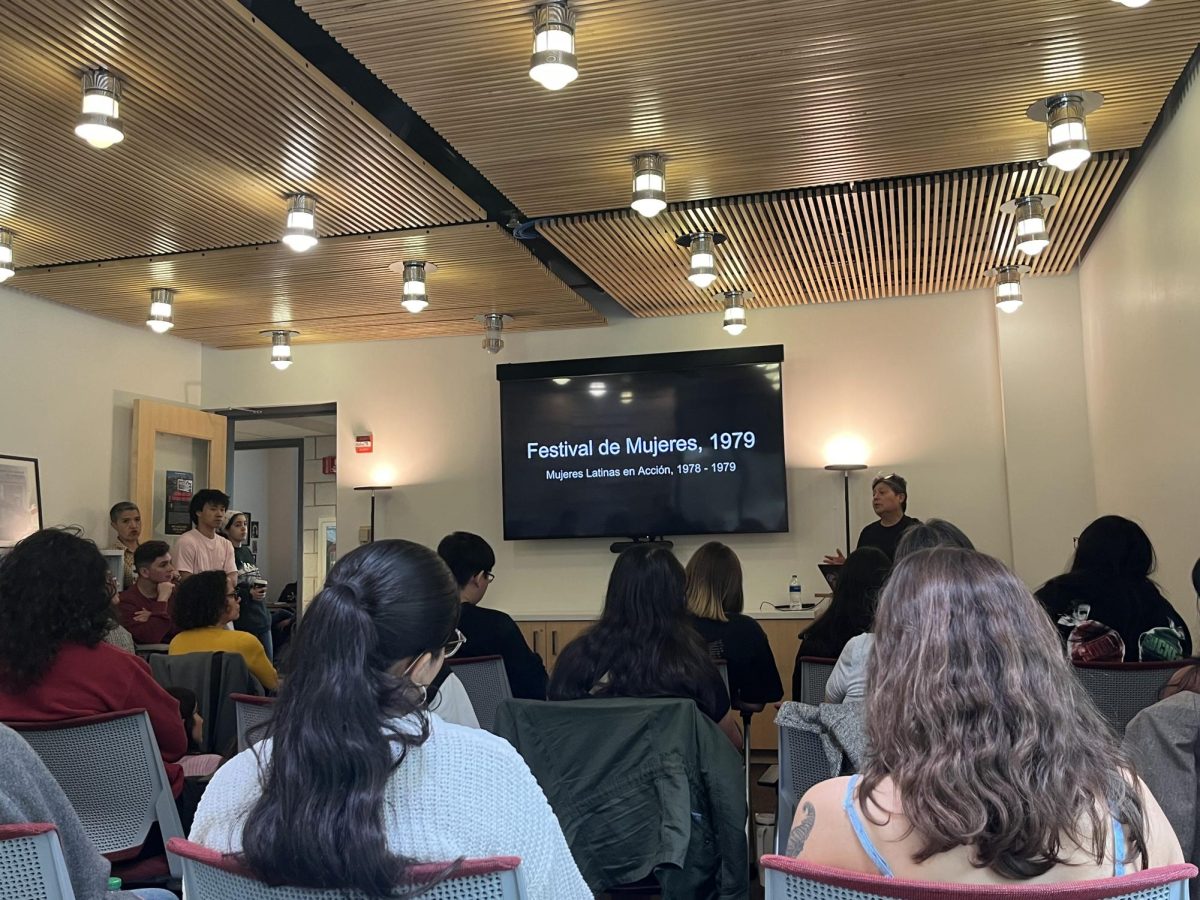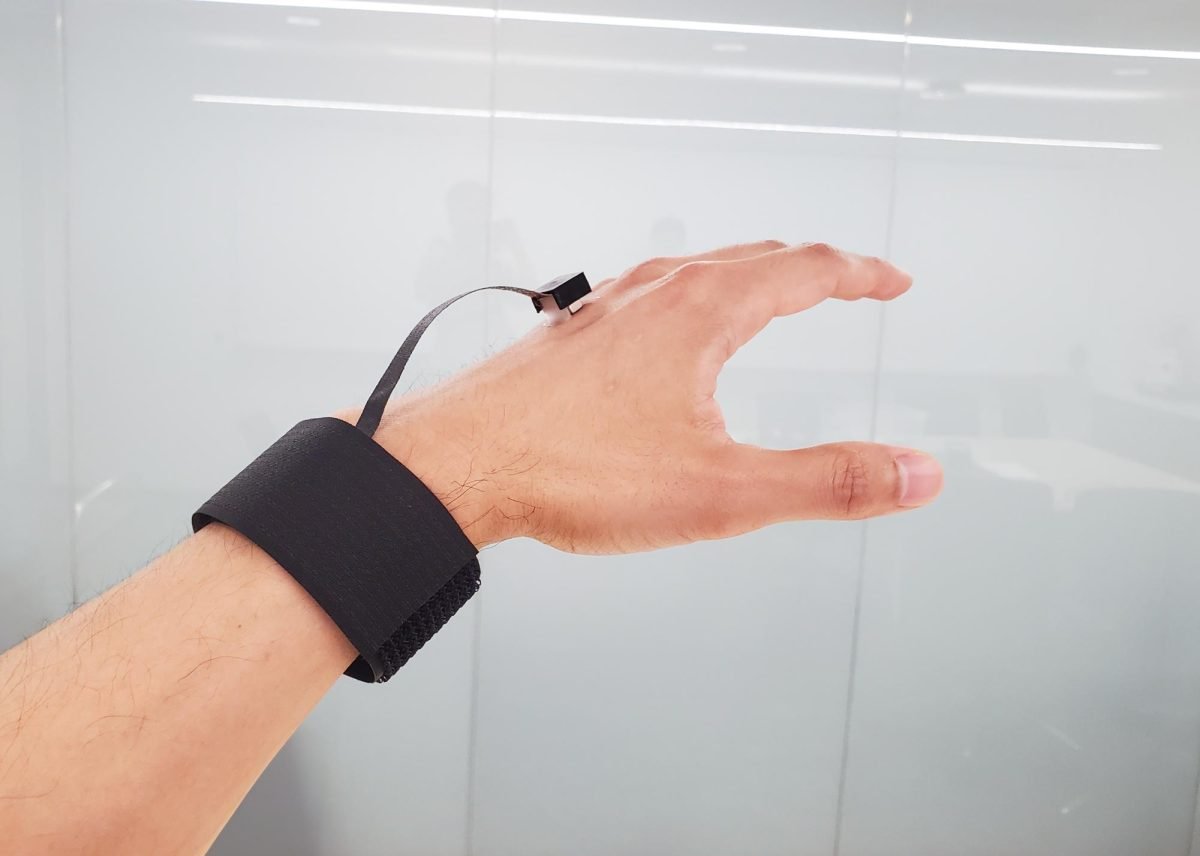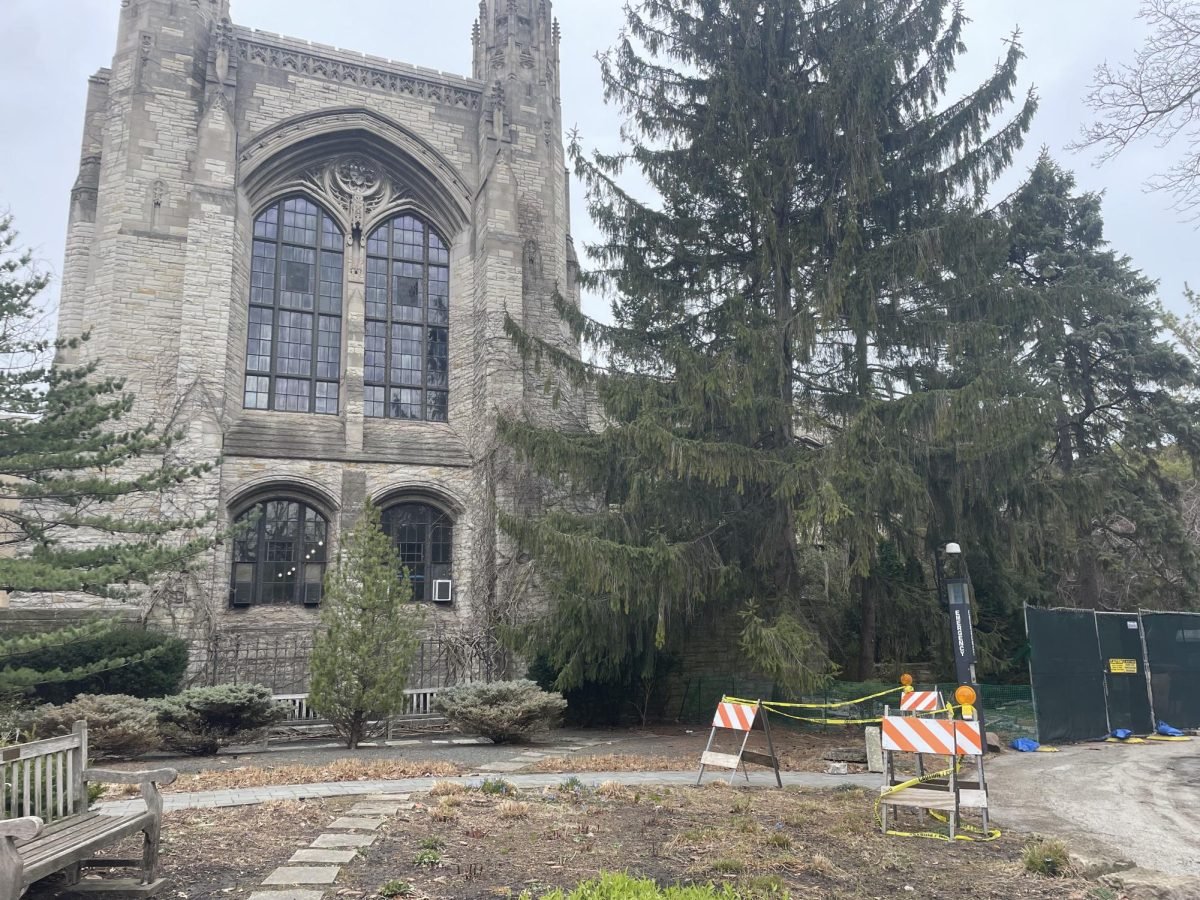About 30 students gathered at Crowe Hall on Monday to enjoy the flavors of Mexican delicacies — such as tacos and flan — while listening to Mexican artist and photographer Diana Solís discuss Latina history in Chicago.
Solís began the event by playing “Festival De Mujeres,” a film documenting the 1979 festival that took place in Chicago’s Pilsen neighborhood. She then told attendees about her involvement in the festival and her plans to keep Latinas in future discussions.
“What inspired the festival was the idea that there was always a lack of space for women to find other resources about women,” Solís said.
The celebration was filled with music, dance, poetry and discussion, showcasing Latina activism and acknowledging the work of the women and the issues they faced, Solís said.
“When people talk about the history of Pilsen, they don’t really talk about the women doing this work,” Solís said. “This is a festival by and for women.”
Chicago-based organization Mujeres Latinas en Acción organized the festival, which Solís called a “feminist festival.”
Solís said the festival was a block party-style event meant to be run entirely by women.
The resources available at the event centered around health and welfare opportunities for women from the area. Solís said although the event attendees were mostly Latinas, it was open to everyone. They added a mixed group of women came for the services and to support the cause.
Community organizers — many of whom were women — packed the festival. Solís said people benefitted from the organizations by learning about how the work of women activists inspire and create change.
“People came to the festival because they didn’t feel threatened by what we were doing,” Solís said.
Solís said her current goal is to create a monument that represents the legacy of Latinas in Pilsen with the Pilsen Latina Legacies Project.
Solís told students she wanted people to reimagine monuments and think about what constitutes one. She said she wants to figure out how to create something that “speaks to all our histories.”
Solís said art is a way to foster change about issues that people do not normally think about. They added that they believe art provides a more equitable way to see the world.
“It’s important to know who these women were and why they did what they did,” Solís said.
Email: janellemella2027@u.northwestern.edu
Related Stories:
— Xochitl Gonzalez read from “Olga Dies Dreaming” during her Monday afternoon talk.
Writer, screenwriter Xochitl Gonzalez talks feminism in Latine community
— Chicago Latino Film Festival comes to NU to educate students of Latino culture
— ‘With specificity, there’s universality:’ Destinos uplifts and amplifies Latino voices






